Innovations in food and agriculture were the main focus in Israel’s tech ecosystem this week as hundreds of investors, entrepreneurs, academics, executives, and representatives from global corporations in Israel and across the world gathered in Tel Aviv this week for a number of major events in these sectors.
On Monday, some 1,500 people took part in the annual FoodTechIL 2019 conference at the Tel Aviv Port, including executives from Pepsico, Danone, and Mondelez (the parent company of Oreo, Cadbury, and Toblerone to name a few. The next day, over 700 guests gathered at Tel Aviv University for AgriVest 2019, an annual agriculture innovation conference where Israeli startups showcased their latest tech in the industry.
SEE ALSO: Global Firms Get A Taste Of Israeli Food Tech Innovations During AgriFood Week
Both major events featured a startup competition and vast spaces for some 50 exhibiting companies blazing new trails in food and agri-tech.
It’s been a good year so far for Israeli ventures in the industry, with companies raising $135 million in investments up to Q3, according to a new report issued Start-Up Nation Central (SNC) ahead of what the non-profit designated Israel’ AgriFood Week to note the myriad events and meetups for industry professionals. 2019 is set to be a record funding year for companies in these sectors, SNC said.
While there are some 350 startups in the industry in Israel as of mid- 2019, according to the latest data provided by the organization, here are the 10 that stood out for us.
DouxMatok
Founded in 2014, Israeli startup DouxMatok, developed a patented sugar reduction solution that retains the texture, sweetness, and appearance of sugar. The company says its proprietary tech is based on loading sugar molecules to form clusters that release them right next to gland receptors, resulting in an increased perception of sweetness.
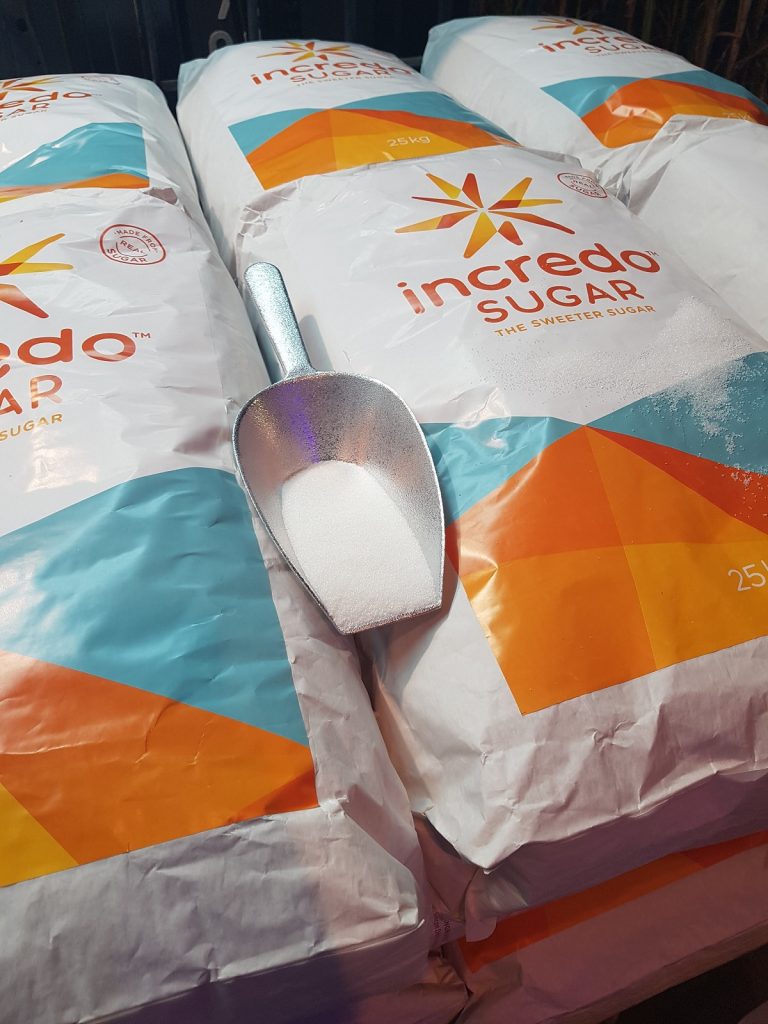
“We are the only [sugar reduction] company actually based on sugar,” DouxMatok CFO Shaul Sharoni tells NoCamels at FoodTechIL on Monday where the company also debuted its “Incredo” sugar product that indeed looks like regular sugar.
“Our product behaves like sugar and it has that crystallization as sugar does; it’s the same process but we added a ‘secret sauce’ for sugar reduction,” he says.
DouxMatok has 18 registered patents and over 40 patent applications pending, the company says. Last year, it won the Prime Minister’s Innovation Award in Israel and announced a partnership with German company Südzucker, the largest sugar producer in Europe, to set up production, joint marketing and sales of DouxMatok sugar to Europeans by 2020. It is also currently collaborating with multinational food companies to integrate their technology into various food brands.
In June, DouxMatok raised $22 million in a Series B funding round led by Singapore’s BlueRed Partners to further commercialization and scaling efforts.
O.Vine
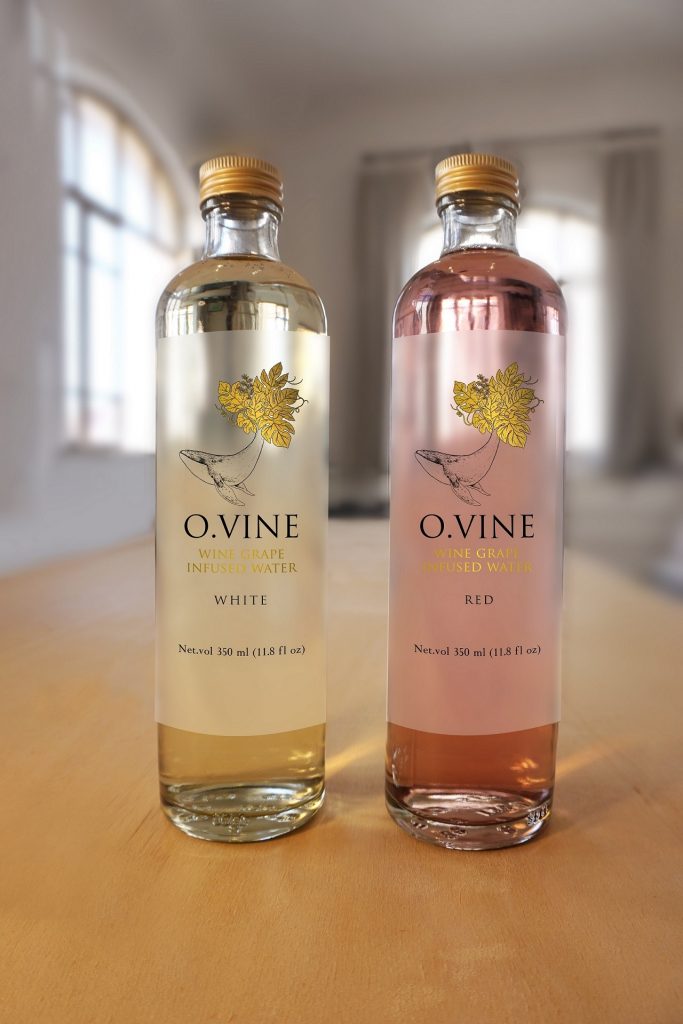
Flavor-infused water that tastes like wine? Pour us a glass! Rosh Pina-based Wine Water company O.Vine uses upcycled wine grape residue for its O.Vine Wine Essence Water, which had its official release in June in New York at the Summer Fancy Food Show.
The grapes are sourced from Galilee vineyards. “The environment in which the grapes are grown, the quality of the earth, and the impeccable climate are factors that determine the flavor, color, body, and aroma of wines; likewise is our fine wine water collection,” Anat Levi, CEO and founder of Wine Water, told NoCamels earlier this year. “Chardonnay grapes grown in different locations will inherit distinctive characteristics that are very different from one another.”
“The new beverage duo emanates from single grape varieties,” says Levi. ”The Cabernet has a dark, red fruity character with a note of chocolate and a gentle tart twist. The Chardonnay imparts more tones of lime and apple, with notes of caramel. Both are equally refreshing and delicious.”
O.Vine debuted their wine grape water last year and won “Best New Water” concept award at the prestigious Global Bottled Water Congress in Evian, France. The drinks are sold in the US and set to launch in the UK and France.
Hargol FoodTech
Grasshoppers are at least 70 percent protein and full of health benefits, says Hargol FoodTech founder and CEO Dror Tamir, who started the company after learning that grasshoppers provided a sustainable protein alternative with numerous advantages.
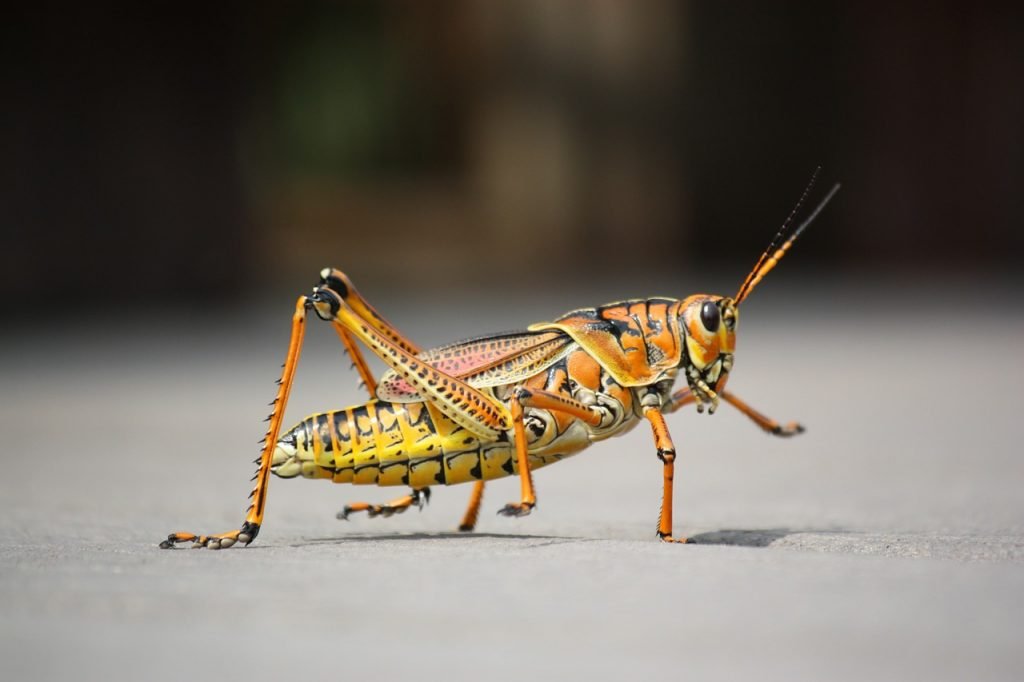
Founded in 2014, the company already has full facilities set up in northern Israel and is selling in both Europe and the United States, according to Tamir.
The firm sells two products: one is the whole grasshopper, sold to restaurants and food produces and sometimes retail chains as a snack; and the other is a protein powder, sold as an ingredient.
There is talk of nutritional supplements, meat-replacement products, and much more coming in the future and why not? Since the company’s first award in 2016, it has gone on to win at least 10 more.
EggXYt
Founded in 2016, EggXYt developed technology that can detect the gender of chicks before hatching, answering the demands of conscious egg consumers who abhor the practice of male (which don’t produce eggs) chick culling.
The company won the startup competition at AgriVest on Tuesday, besting 11 other competitors selected from some 60 applicants.
The company “enables a sustainable future for the livestock industry,” said founder Yehuda Elram during his pitch. Elram, an Israeli entrepreneur, is also the grandson of egg farmers collaborated with Tel Aviv University neuroscientist Prof. Dani Offen to come up with a way to determine the genetics of a chick before it was born.
Using gene editing and slightly tweaking the DNA, Elram and Offen have created a binary solution where the male chicks are marked using a special scanner.
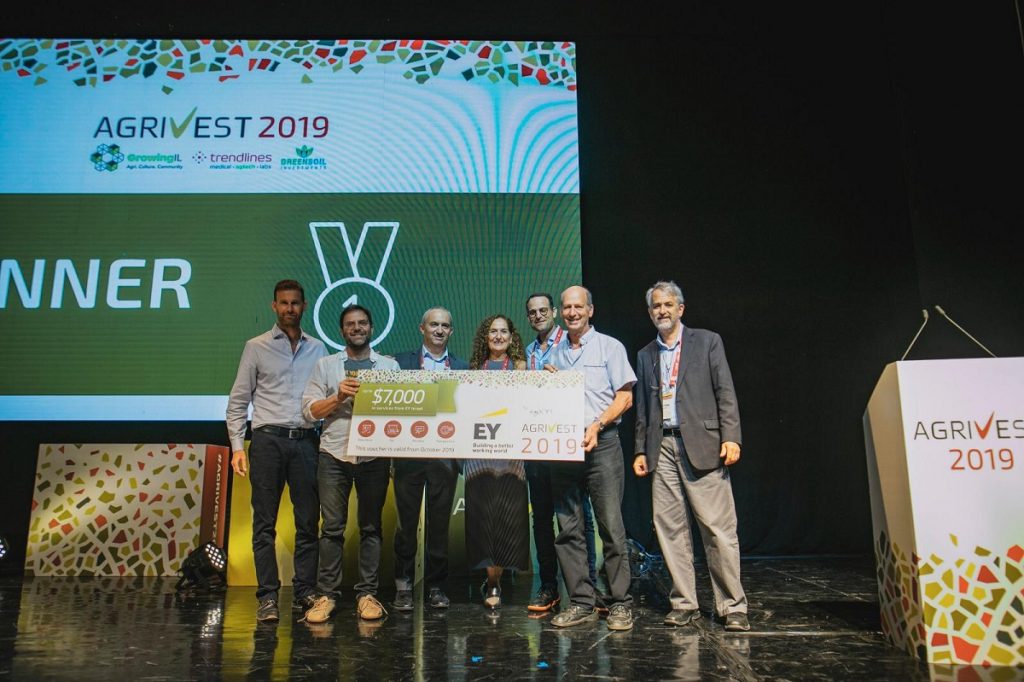
FruitSpec
Inaccurate fruit yield estimation from an early stage is a key problem in the food chain. It is difficult to estimate an accurate fruit yield and most growers have realized that simply counting a sampling of fruit on a tree does not suffice. Where technology is concerned, at an early stage it is difficult to decipher green fruit from green leaves in an image. This also has a major impact on decisions related to crop maintenance, handling and sales projections.
Sign up for our free weekly newsletter
Subscribe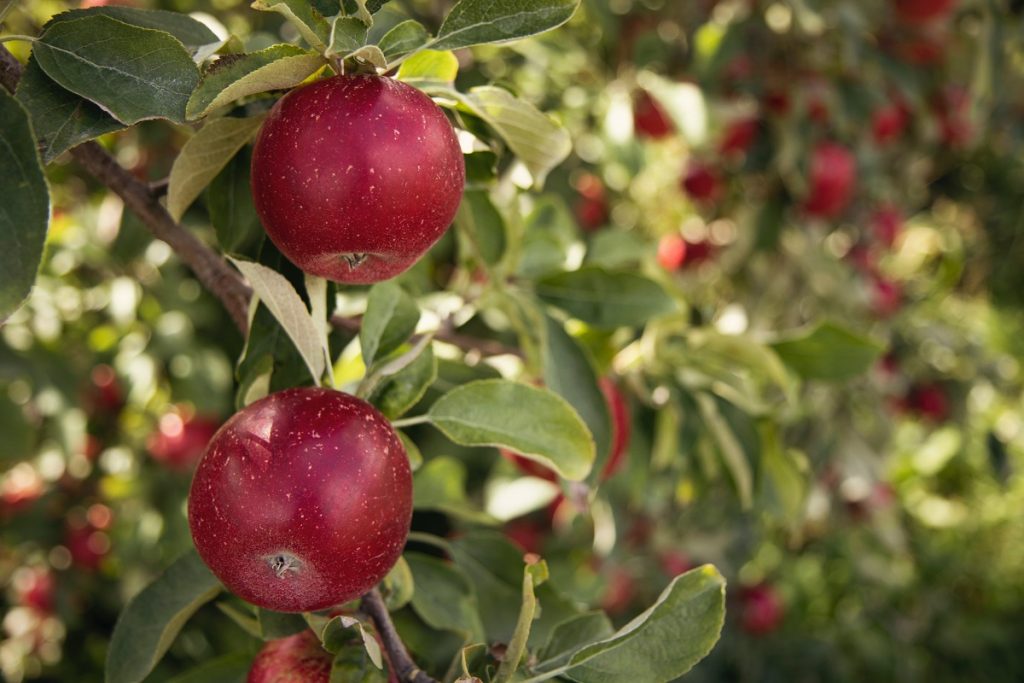
Enter FruitSpec, a company that provides fruit yield estimation as a service. Their solution for highly accurate estimates/projections of fruit yields is based on hyperspectral machine vision technology. Their patented hyperspectral and computer vision algorithms enable companies to count the number of fruit and to estimate fruit sizes for accurate early-season estimation. The FruitSpec team comes, scans the orchard, and provides the reports. Their accuracy rates are above 95 percent, the company says.
At AgriVest this week, the company announced that it completed an investment round of $4 million with investors that included AgVentures, a South African agtech investment company, and China’s Hubei Forbon Technology Co. Ltd.
Automato Robotics
Founded in 2018, the Tel Aviv-based startup Automato Robotics developed what it says is the world’s first affordable robotic tomato harvester for greenhouses on soil.
The company, which makes its robots in Israel but targets Almeria, Spain as its first major market, was created to solve what it believes is an international labor crisis in agriculture, by developing a product to replace the field worker.
Tipa Corp
TIPA Corp is a developer of biodegradable packages for the food, drink, and fashion industries
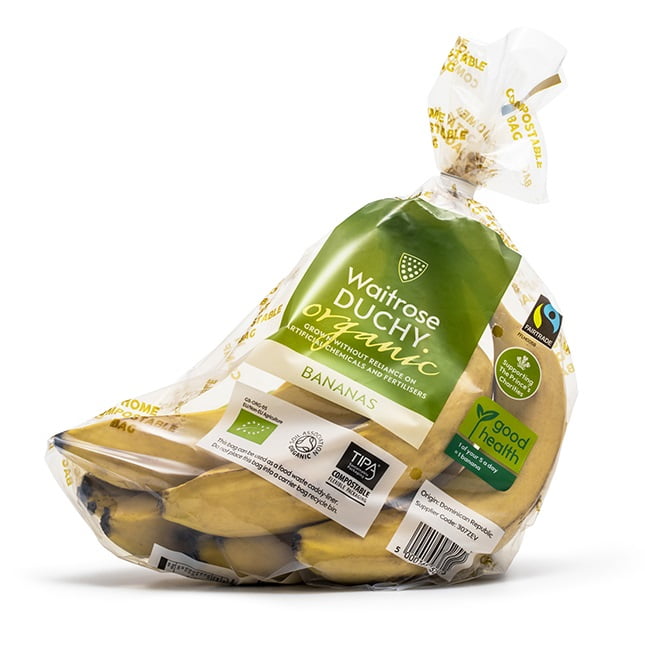
Founded in 2010, the award-winning startup has a vision to offer “sustainable packaging solutions that break down and return to nature, and are glad to continue expanding as we offer a patented technology to leading brands all over the world,” said Daphna Nissenbaum, CEO and co-founder of TIPA.
Earlier this month, Tipa announced a $25 million funding round by investors including Blue Horizon Ventures, Triodos Organic Growth Fund and existing investors Chestnut and GreenSoil Investments.
This summer, TIPA was among 56 firms named by the World Economic Forum (WEF) to its “Technology Pioneers 2019” list.
TIPA also won an award in the 2019 FT/IFC Transformational Business Awards in London, the prestigious impact-driven awards program set up by the International Finance Corporation, an arm of the World Bank Group, and the Financial Times. TIPA won in the Transformational Solution in Food, Water, & Land category.
EatSane by A1C Foods
Food is a celebration and should remain that way, says A1C foods, a company that makes low-carb “indulgences for people who count carbs.”
Founded in 2016, A1C Foods developed a patent-pending formula to lower the glycemic index of food products to make them low-carb. It claims not to use artificial sweeteners or sugar substitutes, relying instead on the expertise of a team of doctors, dieticians, chefs, and food technicians “passionate about flavor and extremely conscious about health.”
The company points to rising global obesity rates and chronic diseases such as diabetes due to solutions to date that have been “insane.”
“We are on a revolutionary journey to introduce a new approach to eating, by adjusting people’s pallets to lower levels of sweetness, while enjoying great-tasting food,” wrote Dr. Mariela Glandt, a Harvard and Columbia trained endocrinologist and researcher who also founded the Glandt Center for Diabetes Care, and entrepreneur Ran Hirsch, the co-founders of A1C Foods on a previous version of their website.
SEE ALSO: How Israeli Ingenuity Is Keeping Your Sweet Tooth Healthy
“Through our products we provide an easy way to accomplish detoxification from the sickening dietary habits that we have adopted over the past 50 years. We believe this is the way to stop and reverse the obesity and diabetes pandemic,” they say.
A1C’s newest brand, EatSane, is set to roll out a line of chocolate treats and bread, with plans to launch pastas, cereals, ice cream and other snacks in the future.
EatSane plans to officially launch later this year and begin operating in the US next year.
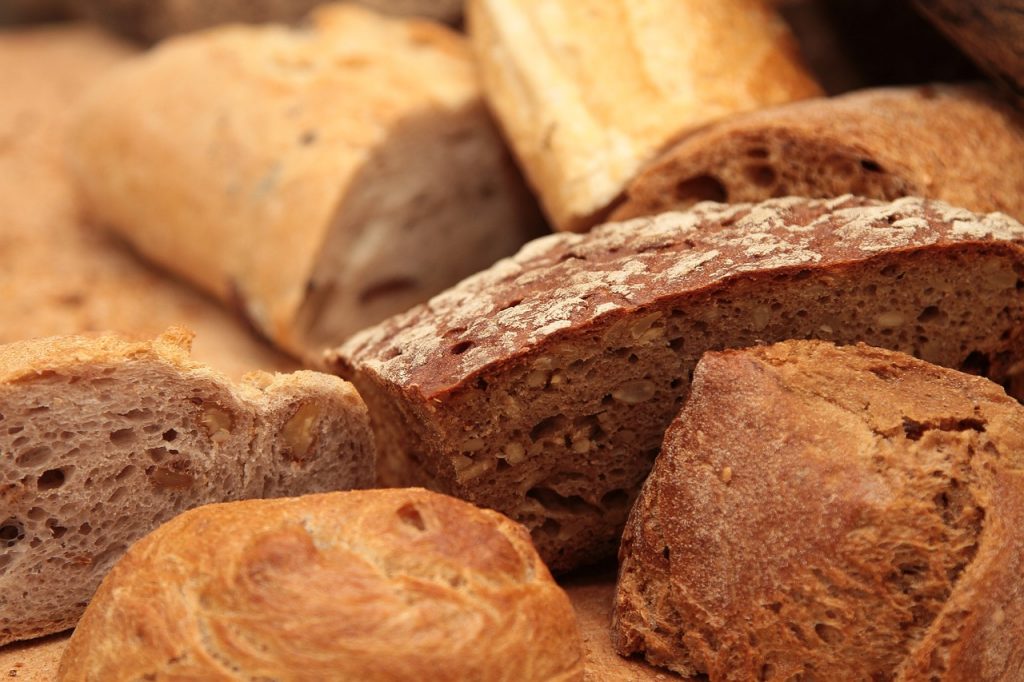
SeeTree
Founded in 2017 by former intelligence officers and serial entrepreneurs, SeeTree provides farmers with an end-to-end service to manage and optimize the health and productivity of their trees. The startup extracts data using high-resolution, multi-dimensional sensing imagery obtained from drones, paired with ground sensors and rangers with boots-on-the-ground who acquire samples for further analysis, the company says.
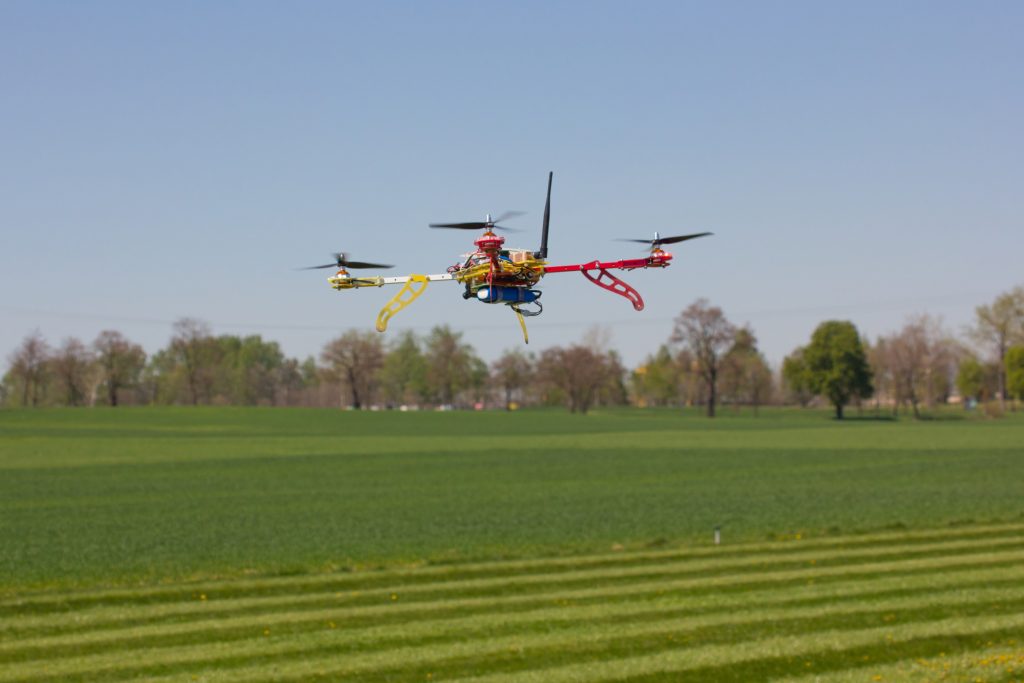
The company, which also has offices in California and Brazil, raised $11.5 million in a Series A round in January led by Hanaco Ventures, with additional participation from seed round investors, including Canaan Partners Israel, Uri Levine (co-founder of Waze), iAngels, and Mindset.
Water.IO
Founded in 2015, Water.IO developed an IoT smart packaging solution for packaged consumer goods, such as food, beverages, home products, pharmaceuticals, and beauty products. The company’s solution is to use disposable sensors within the packages to capture data about its volume, temperature, and use.
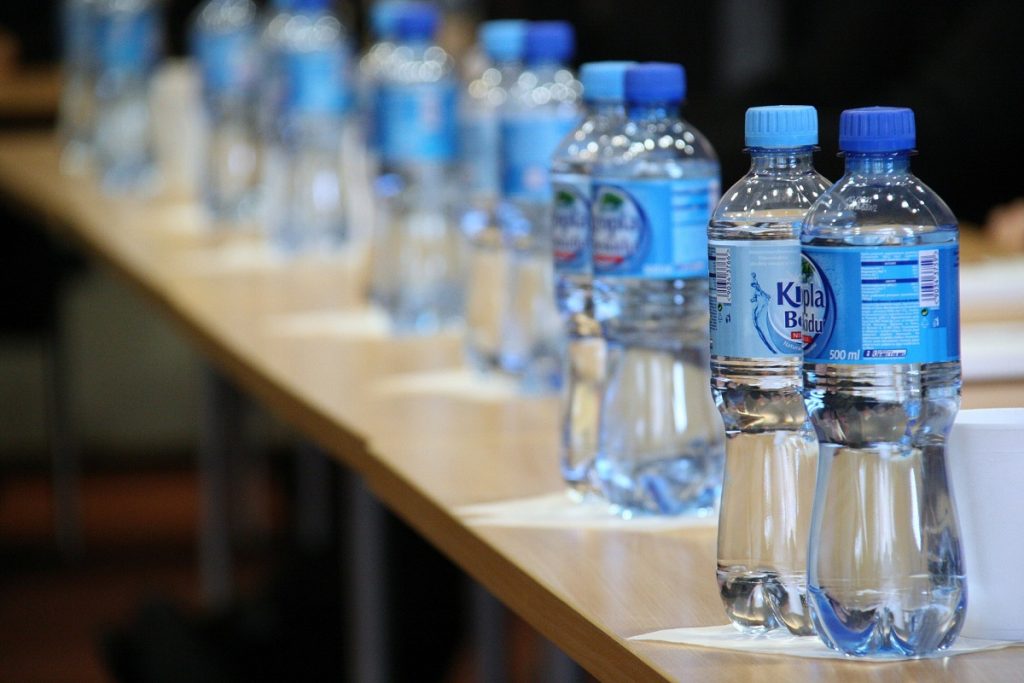
The company’s solution any type of packaging into smart packaging regardless of the content (liquid, powder, pill or capsule). The information derived from the sensors is sent to an app, along with historical analytics and data for actionable insights.
Water.Io’s products include smart caps for water bottles that send out alerts to promote water consumption, compliance packaging for pharmaceuticals that measure the number of pills or syrup levels and send out alerts and reports, and caps for consumers goods such as detergent bottles that track usage.
Water.Io’s clients include Bayer, Danone, and Mei Eden in Israel.
Related posts

Editors’ & Readers’ Choice: 10 Favorite NoCamels Articles

Forward Facing: What Does The Future Hold For Israeli High-Tech?

Impact Innovation: Israeli Startups That Could Shape Our Future




Facebook comments